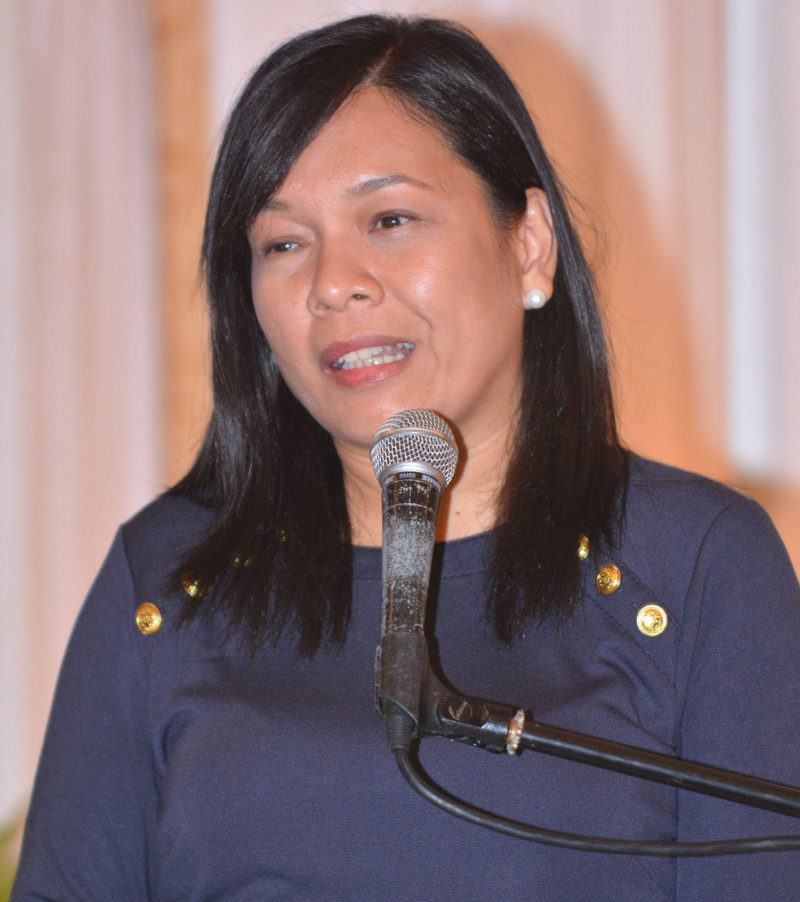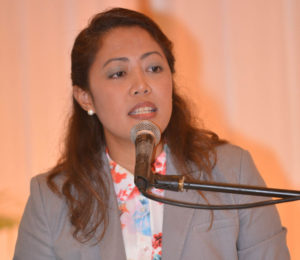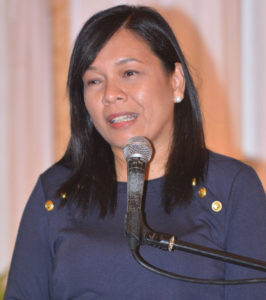

The Port of Cebu is almost ready for the July implementation of the Safety of Life at Sea (SOLAS) policy on verified gross mass (VGM). This, after a cargo handler and a group of ocean carriers based in Cebu produced a draft order that the Cebu Port Authority (CPA) can use to locally adopt the measure.
Oriental Port and Allied Services Corporation (OPASCOR) and the Association of International Shipping Lines Cebu Chapter have submitted the draft policy to CPA and other Cebu port stakeholders for review, according to Atty. Annabel Pulvera-Page, OPASCOR legal and corporate development manager and chief legal officer.
Page, who spoke at the recent first Visayas Shipping Conference 2016 organized by PortCalls and the Philippine International Seafreight Forwarders Association (PISFA), said the draft order was based on CPA’s existing policy on mandatory weighing of outbound containers, Administrative Order No. 01-2008.
By July 1 this year, amendments to Chapter VI Part A of SOLAS will take effect, requiring a shipper to verify and indicate to the carrier or port operator the VGM of a packed container before it is loaded onto the vessel. The amendment states that without the VGM data, the container will not be loaded aboard the vessel.
A competent government agency is required to issue rules specifically related to the SOLAS VGM policy. CPA is Cebu port’s governing body. OPASCOR provides cargo-handling services at Cebu International Port.
Page said CPA plans to conduct public consultation on the draft policy a week after the May 9 national elections and to issue the final draft as soon as possible. A dry run is tentatively set for June 1 to familiarize shippers with the policy and allow for adjustments as needed before July.
According to the draft proposal, the shipper will not be penalized if there is a discrepancy between the weight it submitted and the weight recorded by the terminal. But the shipment will not be accepted at gate-in unless an amendment is made either with the shipping instruction or the cargo itself.
If the submitted VGM has to be amended, Page said shipping lines are being requested to make the process easy to avoid further delays.
The current weigh bridge cost, Page noted, is just P120. A fee for the sticker might be added as well.
On preparations being undertaken by the terminal, Page said the main concern is how shippers can communicate the VGM to the shipping lines. Currently, a process is in place whereby shipping lines relay to OPASCOR the weight of the container.
She noted that once the shipper submits the VGM data to the shipping lines, it will be easily communicated to the cargo handler.
Under the SOLAS amendment, there are three ways for shippers to communicate the VGM—through the shipping line’s website, third-party ports system such as Inttra, and through email, according to Maersk Line Filipinas, Inc. inland operations manager Maria Cecilia Bejoc, who also spoke at the Visayas Shipping Conference.

Alternatively, the shipper can provide the VGM to the terminal, which in turn will relay the information to the carrier through EDI or manually. The shipper may also choose to use a weighing facility in or outside the terminal to get the VGM, and that facility will provide the VGM data to the carrier through EDI or the manual process.
As for the acceptable discrepancy tolerance between the shipper’s submitted weight and the terminal’s own data, Page said they are still researching what variants to use in Cebu.
The OPASCOR executive said the Bureau of Customs must clarify if the VGM will be used for export declaration as well, because validations might be conducted in the shipment’s country of destination.
In this case, there will be a need to amend the export declaration if the weight submitted by the shipper differs from that of the terminal’s.
Meanwhile, Page said OPASCOR is already doing enhancement works to prepare for VGM implementation. Two truck-scale facilities calibrated by the Department of Science and Technology and accredited by the CPA are now strategically located near the port, she added.
While Cebu port is thick in preparations for the enforcement of the SOLAS VGM, shippers in Manila and port stakeholders are still requesting the Philippine Ports Authority (PPA) to issue guidelines on the policy, considering the agency handles around 70% of the volume coming in and going out of the country.
After a meeting with PPA on April 8, the European Chamber of Commerce and Industry issued an advisory on April 13 which said the port agency “will shortly organize a final session on this with all stakeholders.”
READ: PH stakeholders press for implementing rules on IMO verified gross mass policy
A March 11 forum organized by PortCalls and PISFA was attended by much confusion as it became apparent then there were no government regulations specifically formulated to comply with the measure. – Roumina Pablo




